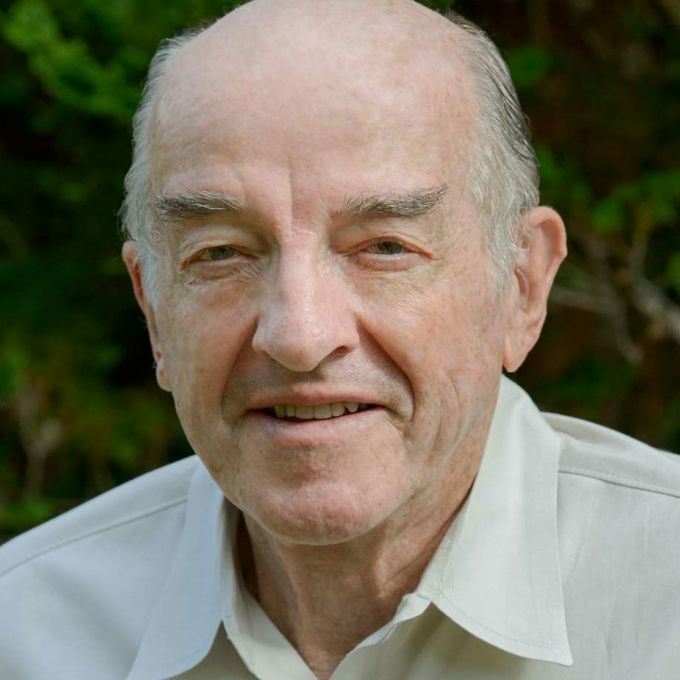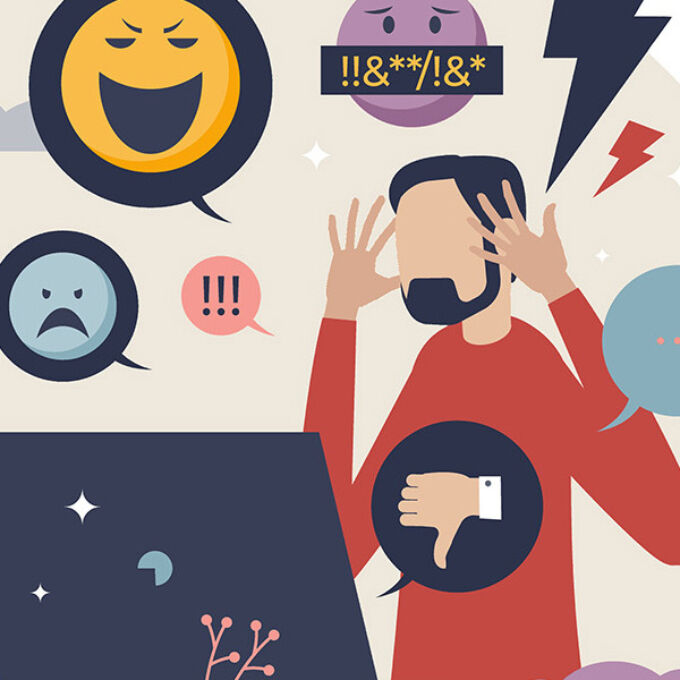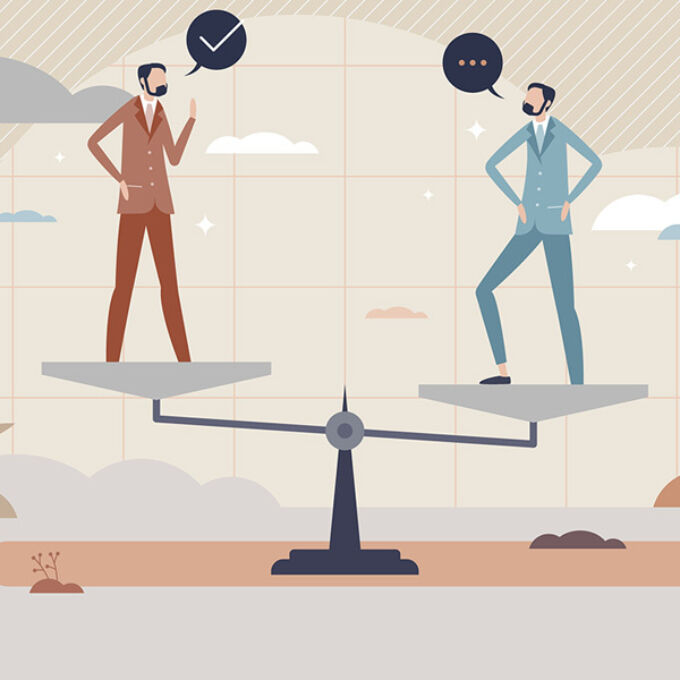What is media regulation?
Media regulations refers to the laws and rules about media —our methods of communication. In the United States, media rules are made and enforced by the Federal Communications Commission (FCC).
People in favor of regulation believe it helps prioritize public interest over corporate interests. Those who support deregulation argue that it allows companies and entrepreneurs to operate more efficiently and opens the door to innovation.
What does the FCC do?
The FCC regulates communication systems within the United States. This includes radio, television, wire, satellite and cable used for communication within the country and internationally. The FCC is the primary authority for communications law, regulation, and technological innovation.
The members of the commission are appointed by the president, subject to the approval of Congress, and are headed by a chair appointed by the president but limited to a five-year term. At least one member of the board must be from a different political party.
In our interview with Michael Copps, he describes the role of two pieces of legislature that affect how the FCC regulates media: the Chevron Doctrine and the Fairness Doctrine.
The Chevron deference, or Chevron doctrine, is an administrative law principle that compels federal courts to defer to a federal agency's interpretation of an ambiguous or unclear statute that Congress delegated to the agency to administer.
U.S. communications policy (1949–87) formulated by the Federal Communications Commission (FCC) that required licensed radio and television broadcasters to present fair and balanced coverage of controversial issues of interest to their communities, including by granting equal airtime to opposing candidates for public office.
What Is the role of public media?
Public media is a system of independently owned and operated local public radio and television stations.
The Public Broadcasting Act of 1967 established the Corporation for Public Broadcasting (CPB), a private, non-profit corporation managed by a nine-member board appointed by the President and approved by the Senate to funnel government support to public stations and producers nationwide. CPB’s role in public media is to shield stations from political influence, and deliver federal support in a way that does not affect a station’s ability to operate independently. More than 1,041 local public radio stations and more than 365 local public television stations currently receive support from CPB.
To learn more, check out these timelines of public media in the U.S.:
Copps emphasizes the correlation between public media and healthy democracies, stating that, "High levels of secure funding for public media systems and strong structural protections for the political and economic independence of those systems are consistently and positively correlated with healthy democracies." As we mentioned in our discussion of news avoidance, countries with robust public media systems tend to have higher levels of trust in the news as well as lower levels of news avoidance. Despite this evidence in favor of public media, some political leaders in the United States have threatened to defund public media.
The way forward
Commissioner Copps has ideas about what is needed to reassert the primacy of the public interest in media regulation:
What can I do?
Copps advices making media regulation a prominent issue in the minds of voters, so he suggests awareness and advocacy for media regulation.
Practice civic engagement
"Talk to your family, you talk to your college roommate, you talk to your friends, you talk to your business colleagues and just try to make people aware of the issue that's out there. Write a letter to the editor of the newspaper," Copps says, "Do whatever you can to get the word out there and you're organized."
Participate in grass roots activism
"If you look back over the course of American History, reform has seldom come as a gift from this wonderful leaders and politicians in Washington," says Copps. "It's usually come in response to pressure from the grassroots...that's how you get their attention and their vote. I remember a congressman called me one time when I was at the FCC and he had not been friendly toward what I was trying to do up in the hill at that particular time, and he called to say, 'I never thought that this media consolidation issue is really a very big deal.' He says, 'I went home last week and I had a town hall meeting and hands went up all over the place and people were talking about the state of the media. I was really surprised.' The guy came back and voted with me at the Federal Communications Commission. That's just an example of how I think it works."

We've corporatized, consolidated, and cable-ized our media and lost the art of real journalism in the process. We were all excited when that internet came along. My goodness, that was going to be the new town square of democracy! Power at the edges, and everybody would have a voice, and compare that with the reality that evolved, with power consolidated in the middle, and a few big companies controlling our internet experience. So, you can see the opportunity that we have missed.
Michael Copps, former commissioner for the Federal Communications Commission
What do you think?
Keep in mind
Media ownership has serious implications for the quality of journalism we can access
- When control over the media is concentrated in fewer and fewer hands, it becomes easier for owners to amplify propaganda driven by their own political views or business interests, thus ignoring the public interest and eroding the quality of journalism.
- Media consolidation can lead to decisions that are driven by profit and the pressure to reduce costs can often result in cuts to newsroom staffing as well as pressure to produce commercially friendly stories.
Ordinary citizens matter
- An informed citizenry is vital to the health of our democracy.
- Grassroots efforts and civic engagement play an important role in media regulation—or lack thereof.

The fact that the FCC has not been running...how it should for two years now is something that all Americans should be concerned about.
Sydney Forde, guest host
Listen & Subscribe
Listen to Episode 109: Protecting Public Interest: The Role of Regulation in Media and subscribe to our News Over Noise podcast to continue learning how to balance staying informed while protecting your well-being and the public good.


